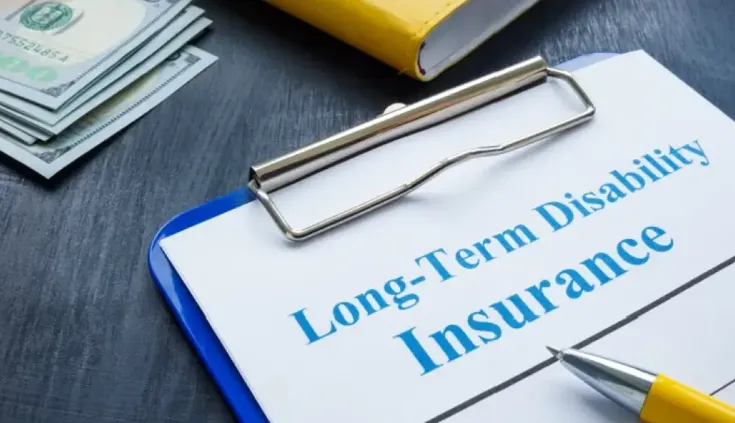Lawyers spend years honing their skills, building client relationships, and maintaining demanding schedules. The profession requires exceptional focus, communication, and stamina. But when an injury prevents an attorney from fulfilling these essential duties, it can bring a promising career to a standstill. That’s when long-term disability benefits become a crucial safety net. Understanding which types of injuries may qualify helps lawyers protect both their health and livelihood.
Many firms that specialize in attorney disability claims emphasize that legal professionals face unique occupational risks compared to other fields. Even conditions that may seem manageable can become disabling when they hinder core legal functions—such as writing, analyzing evidence, or appearing in court. Long-term disability insurance exists to support attorneys who can no longer perform the substantial duties of their “own occupation,” even if they could technically work in a different field.
1. Musculoskeletal and Postural Injuries
Long hours of sitting, typing, and working under pressure can take a serious toll on the body. Lawyers frequently suffer from musculoskeletal disorders such as chronic back pain, cervical spondylosis, herniated discs, or repetitive strain injuries. These issues may seem minor at first but can become progressively worse, making it difficult to maintain courtroom appearances or spend long hours reviewing case files.
When pain or mobility problems interfere with your ability to sit, focus, or even commute, it may justify a long-term disability claim. Medical imaging, physical therapy records, and reports from specialists can strengthen your application and show how the injury directly affects your professional performance.
2. Neurological and Cognitive Impairments
The practice of law demands precision, memory, and critical thinking. Injuries that affect the brain or nervous system—such as traumatic brain injury (TBI), stroke, nerve damage, or chronic migraines—can significantly hinder these abilities. Even mild cognitive impairments, like memory lapses or difficulty concentrating, can impact a lawyer’s ability to draft documents, argue cases, or provide accurate legal advice.
In such cases, neurologist evaluations and cognitive assessments can demonstrate how the condition affects your mental capacity. These records are key in establishing a connection between the neurological injury and your inability to perform legal duties.
3. Vision and Hearing Impairments
For attorneys, communication and attention to detail are non-negotiable. Vision and hearing impairments—such as macular degeneration, retinal detachment, or partial hearing loss—can make it difficult to read documents, review contracts, or participate in hearings effectively. These sensory impairments can easily cross the threshold into disability when they limit a lawyer’s ability to function in their daily professional environment.
Supporting documentation from ophthalmologists or audiologists can be essential for proving that these impairments are not just medical conditions but true occupational limitations.
4. Psychological and Stress-Related Conditions
The legal profession is among the most stressful careers worldwide. Constant deadlines, heavy caseloads, and emotional pressure from clients can lead to severe anxiety, depression, or burnout. Over time, these conditions can make it impossible to sustain consistent work performance, manage complex cases, or make clear decisions.
While mental health disability claims can be more complex, they are absolutely valid when symptoms are well-documented. Regular therapy notes, psychiatric evaluations, and treatment plans can help establish a clear record of functional impairment. Many long-term disability policies now recognize mental health conditions as legitimate reasons for benefit eligibility—especially when they interfere with cognitive performance or social functioning.
5. Catastrophic or Accidental Injuries
Some lawyers face sudden, life-altering injuries caused by car accidents, falls, or serious illnesses. Spinal cord injuries, amputations, and severe fractures can end a legal career abruptly. Even after surgery or rehabilitation, the physical limitations and chronic pain may prevent attorneys from continuing in a full-time legal role.
In such cases, long-term disability coverage provides essential income replacement, helping lawyers recover financially while focusing on rehabilitation or transitioning to a different professional capacity.
Key Takeaways
- Long-term disability benefits protect lawyers who can no longer perform their professional duties due to injury or illness.
- Attorney disability claims cover both physical and psychological injuries that prevent you from practicing law effectively.
- Conditions involving the spine, nervous system, or sensory functions are among the most common causes of long-term disability for lawyers.
- Psychological conditions such as depression or burnout can also qualify if supported by consistent medical evidence.
- Strong medical documentation and proof of how the condition limits your ability to perform legal tasks are critical for claim approval.
- Reviewing your policy early and consulting an attorney who handles disability claims can help secure the benefits you deserve.



